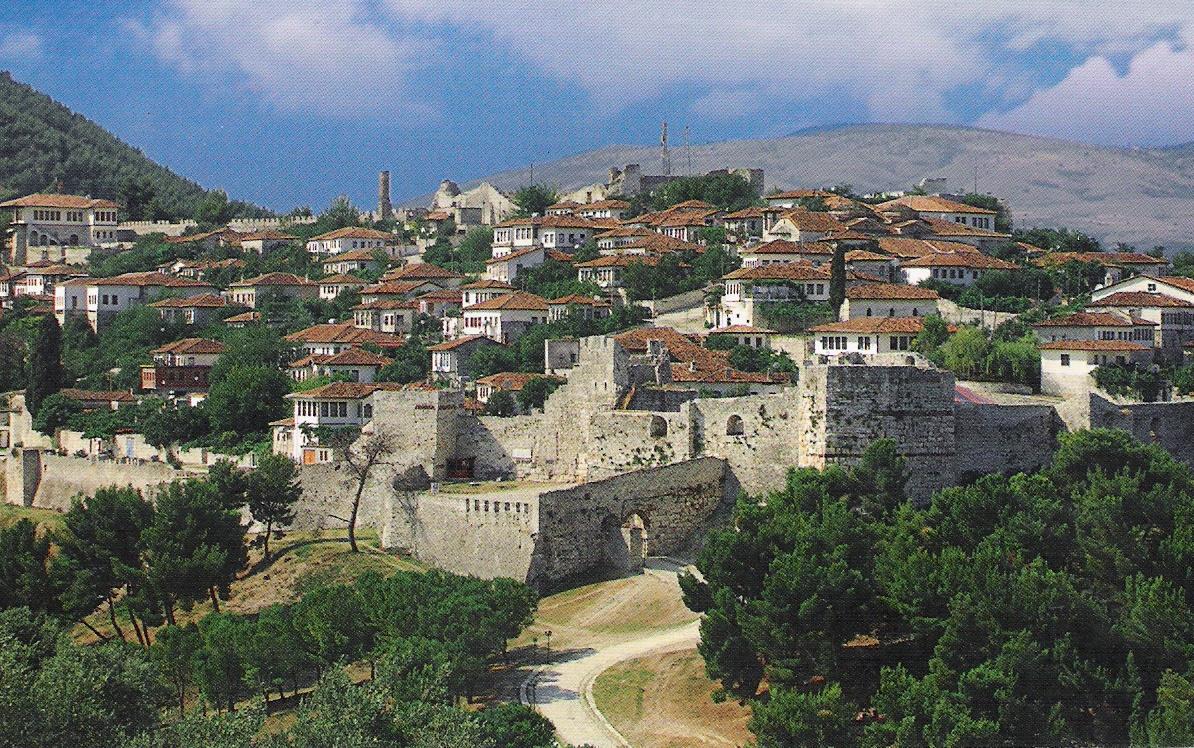The Battle of Berat (1455): A Turning Point in the Albanian-Turkish Conflicts
The Battle of Berat, fought in 1455, stands as one of the most pivotal events in the series of confrontations that shaped the fate of Albania and the wider Balkan region during the 15th century. This battle, part of the prolonged Albanian-Turkish Wars, marked a decisive moment in the struggle for sovereignty and the consolidation of Ottoman power over the Albanian territories. The engagement, which occurred in the region of Berat, is notable not only for the military clash itself but also for the larger geopolitical shifts it signaled.
Background of the Albanian-Turkish Wars
The Albanian-Turkish Wars were part of the broader expansionist efforts of the Ottoman Empire, which sought to dominate the Balkan Peninsula during the 14th and 15th centuries. After the fall of the Byzantine Empire in 1453, the Ottomans began their systematic conquest of former Byzantine territories, with Albania standing as a key region for the expansion of Ottoman control.
Albania, during the 15th century, was not a unified nation but rather a collection of semi-autonomous principalities that had been resisting Ottoman encroachment for decades. These Albanian forces were often led by local lords and warlords, some of whom had managed to maintain a semblance of independence despite the Ottoman siege. However, by the mid-1400s, the growing power of the Ottoman Empire was overwhelming, and resistance became increasingly difficult.
The Albanian resistance was not only driven by local rulers but also by a sense of national identity and the desire to preserve the independence of the Albanian people. Throughout the period, several Albanian leaders rose to prominence, most notably George Kastrioti Skanderbeg, whose rebellion against the Ottomans became legendary. His leadership and military strategies earned him widespread respect among Albanians and even among other Christian nations in Europe. However, despite Skanderbeg’s efforts, the Ottoman Empire’s overwhelming military force and political maneuvering led to the eventual decline of Albanian resistance.
The Battle of Berat: A Brief Overview
The Battle of Berat occurred in 1455, in the city of Berat, located in central Albania. This battle is often remembered as a crucial event in the Albanian-Turkish Wars, signaling the beginning of the end for Albanian resistance against the Ottomans. While the specific details of the battle are not as well-documented as some other major battles in the region, its importance lies in its outcome and the political consequences that followed.
The battle was fought between the forces of the Ottoman Empire and a coalition of Albanian forces, with some support from Naples. At the time, Albania was not a unified state, and its resistance against the Ottomans was fragmented, consisting of various local leaders and alliances. The forces of Berat were primarily composed of Albanian fighters from the region, who were joined by soldiers from nearby cities such as Tirana. On the opposing side were the well-trained and highly disciplined Ottoman forces, led by a commander who sought to reinforce Ottoman dominance in the region.
The Ottoman army was equipped with superior military resources, including artillery and a well-organized structure. In contrast, the Albanian forces, though highly motivated, were often outmatched in terms of equipment and numbers. The Ottoman Empire’s military supremacy was a significant factor in the battle’s outcome.
Despite their efforts, the Albanian forces were decisively defeated. The victory of the Ottomans in the Battle of Berat further solidified their control over Albania and paved the way for the eventual annexation of the region into the expanding Ottoman Empire. The defeat had significant consequences for the local Albanian population, who were subjected to greater Ottoman rule in the years that followed.
The Role of Key Participants
The Battle of Berat was characterized by the involvement of key participants from both sides. On the Albanian side, various local leaders, including those from the city of Berat, Tirana, and other regions, took part in the battle. Although Albania had been resisting the Ottomans for years, the lack of unified leadership and coordinated efforts made it difficult for the Albanians to successfully challenge Ottoman forces.
On the Ottoman side, the battle was a demonstration of the strategic prowess and military might of the Empire. The Ottomans had a clear advantage in terms of their ability to deploy large, organized armies, as well as their superior weaponry. The outcome of the Battle of Berat was a testament to the military effectiveness of the Ottoman forces and their determination to extend their control over the Balkan Peninsula.
The involvement of Naples in the conflict is also significant. While the Kingdom of Naples did provide some support to the Albanians, their contribution was limited. The support they offered, though important, was not enough to turn the tide of the battle in favor of the Albanians. Naples, too, was facing its own political challenges at the time, which affected its ability to aid the Albanian resistance effectively.
The Aftermath: Ottoman Consolidation of Power
The defeat of the Albanian forces in the Battle of Berat had profound implications for the future of Albania. With the Ottomans securing victory, the path to full control of the region was clear. Over the next few decades, Albania would be gradually incorporated into the Ottoman Empire, and many of its local rulers would either submit to Ottoman authority or be eliminated.
The Ottoman victory at Berat also served to demoralize the Albanian resistance, as it demonstrated the futility of continued opposition to the overwhelming military strength of the Ottomans. Many Albanian leaders, including the supporters of Skanderbeg, began to recognize that resistance was becoming increasingly untenable. Over time, the social, political, and cultural fabric of Albania was reshaped under Ottoman rule.
One of the key outcomes of this period was the widespread integration of Albanian territories into the Ottoman administrative system. Albanian nobles were often given positions of power within the Ottoman structure, and the local population was subjected to various forms of taxation and military conscription. The impact of Ottoman rule on the Albanian people was significant, as many Albanians were forced to convert to Islam, while others experienced economic hardships and social displacement.
Conclusion: The Legacy of the Battle of Berat
The Battle of Berat stands as a significant moment in the long history of the Albanian-Turkish Wars and the larger process of Ottoman expansion into the Balkans. Although the Albanian forces were decisively defeated, the battle was not without its lasting implications. It marked the beginning of the end for independent Albanian resistance against the Ottomans and set the stage for the eventual integration of Albania into the Ottoman Empire.
In the years following the battle, Albania would undergo significant changes under Ottoman rule, including the gradual erosion of its traditional cultural and political structures. The lasting impact of this period is still felt in Albania today, as the country’s history during the Ottoman period continues to shape its national identity and the way Albanians view their past.
The Battle of Berat, though not as widely studied as some other historical events, remains a key chapter in the history of the region. It serves as a reminder of the complex and often painful process of territorial conquest and the long-lasting consequences of military conflicts on the societies involved.

